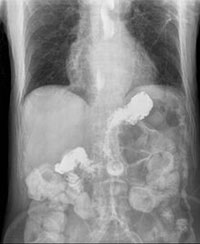DALLAS – Veterans Affairs (VA) North Texas Health Care System has received a grant for $13 million to compare surgical and medical options for the treatment of gastroesophogeal reflux disease (GERD). This 5-year study will include nearly 400 participants eager for diagnoses that may mean a change in their quality of life.

Although the disease itself is not necessarily life-threatening, it causes extreme discomfort in reported patients. While patients range from those who are bothered on occasion by various minor symptoms to patients who live with troublesome symptoms every day, there are many who experience damage to their esophagus and develop esophageal cancer.
Stuart Spechler, M.D., chief of gastroenterology at Dallas VA Medical Center, leads the research team.
“The results of this study will have important implications for how we will treat patients in the future,” said Dr. Spechler, who holds the Berta M. and Cecil O. Patterson Chair in Gastroenterology at UT Southwestern Medical Center.
Spechler is accompanied by researchers Rhonda Souza, M.D. and Thai H. Pham, M.D., both of Dallas VA.
The main focus of the study is to determine which patients should receive surgical over medical therapy. Spechler says there are OTC (over-the-counter) medications, called PPIs (proton pump inhibitors) that are great at stopping acid production in the stomach, but up to 40 percent of patients with GERD who take PPIs still have symptoms. With a fairly new technique being used for the study, doctors will be able to safely determine whether the reflux of acidic and non-acidic stomach juice is associated with symptoms.
The new technology called impedance monitoring will aid Spechler and team by providing new insight. The slim, cylinder-shaped electrical monitoring device is inserted through the patient’s nose into the esophagus for 24 hours to examine reflux of any kind, not just acid.
Prior to impedance monitoring, it has been unclear what to do when patients still have symptoms after taking the best medications available. The results of the study will enable physicians to determine which patients have a valve problem and will benefit best by having surgery. It will further determine which patients can continue on medical therapy alone.
“Although GERD is usually not a life-threatening disease, it can cause troublesome symptoms that affect quality of life. In this situation, we are reluctant to recommend an operation without strong evidence that the operation will relieve the symptoms,” explains Spechler. “This study will tell us whether an operation is needed to really fix the problem.”
Persons interested in joining the study should call (214) 857-1603.